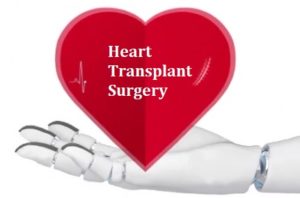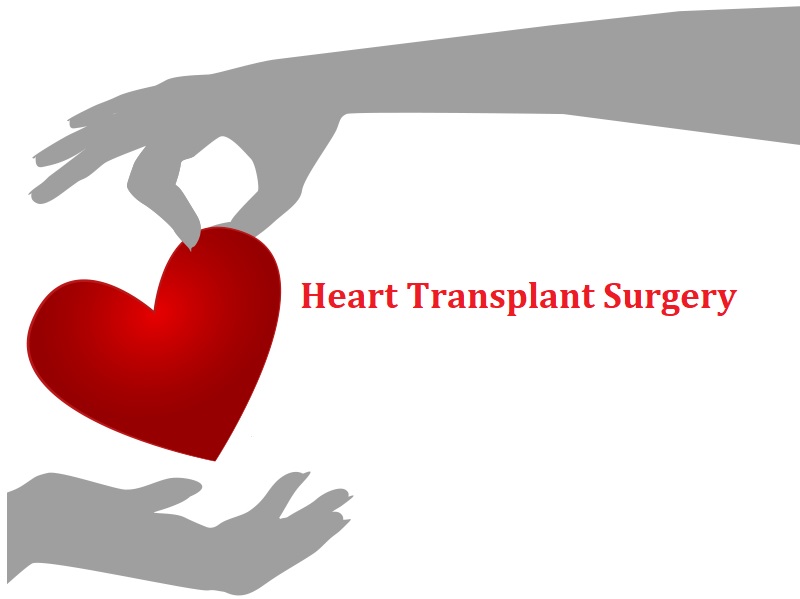The heart is the most vital organ of the human body. It requires special attention and care. Over the years, doctors and researchers have devised new methods and techniques to save people with severe heart conditions. Heart Transplant Surgery is one such treatment that has saved millions of people worldwide and has proved an absolute blessing for them.

Listed here are a few frequently asked questions about Heart Transplant Surgery that will help you understand the term better, and give you an insight into this revolutionary medical treatment.
What is Heart Transplant Surgery?
Heart Transplant Surgery is an operation done by specialists wherein the patient’s diseased heart is removed and replaced with a healthy heart. The donor can be a dead person, or a person declared brain-dead by the doctor whose family agrees to donate the organ.
Can I live a normal life after Heart Transplant Surgery?
Yes, absolutely. You simply need to adopt a healthy lifestyle post a heart transplant surgery and be regular with the prescribed medical check-ups that are meant to evaluate your progress. Mentioned here are a few important things that should be followed religiously for a speedy recovery-

- Be Regular with Your Medicines: After a heart transplant, your doctor will prescribe certain medicines, which also include the medicines to avoid rejection of the new heart by the body. Medicines should be taken regularly without fail.
- Follow Your Doctor’s Advice: Visit your doctor regularly as per the schedule, and immediately in case of the onset of any signs of rejection or any other problem.
- Take Proper Diet: Include fresh fruits, vegetables, and whole grains in your diet. A diet which is low in sodium and sugar content is generally advisable to avoid any heart-related issues. Your doctor will further guide you on this.
- Exercise is Important: Exercise is recommended to keep your heart healthy and to avoid unnecessary weight gain. Discuss with your doctor before beginning any exercises.
How can Heart Transplant affect the way I exercise?
There’s no doubt about the fact that exercise helps keep the heart safe and sound but one needs to be careful about exercising post a heart transplant surgery since the heart is new to your body conditions, and will take time to adapt to new changes. Once you are through with your healing period and your doctor approves, you can start with your regular workout regime, but until then, restrict yourself to the exercises that are suggested by your therapist. As part of the cardiac rehabilitation program, your therapist will customize an exercise program based on your heart condition, age, and health specifications.
What precautions should I take after Heart Transplant Surgery?
Here are a few precautions that are generally suggested by doctors post Heart Transplant Surgery-
- Don’t lift, or push or pull heavy objects.
- Don’t do any push-ups or sit-ups.
- Don’t attempt any activities that cause a feeling of pull or pain in the chest.
- Try to take small breaks as and when required.
- Don’t overdo exercises but start gradually.
- Stop exercising in case you feel angina (chest pain), and contact the cardiologist immediately.
- If you are not well, don’t exercise. Slowly return to your exercise routine, once you feel normal.
What are the benefits of exercising after Heart Transplant?
 The exercise program post a heart transplant is started well before the discharge. Heart transplant gives you a second life while exercise adds quality to that second life. Here a few benefits of exercising regularly after Heart Transplant Surgery-
The exercise program post a heart transplant is started well before the discharge. Heart transplant gives you a second life while exercise adds quality to that second life. Here a few benefits of exercising regularly after Heart Transplant Surgery-
- Strengthens the new heart
- Trains your heart to a new endurance level
- Reduces damage to the new heart
- Reduces chances of high blood pressure
- Reduces chances of diabetes
- Reduces the side effects of medication
- Makes you feel healthier once again
- Helps control weight gain
Heart Transplant is a critical surgery and needs to be addressed rightly. Adopting a heart-healthy lifestyle recommended by your cardiologist is the key to ensuring a speedy recovery. Further, any signs of discomfort or rejection of a new heart by the body should be brought to immediate notice of the doctor. Lastly, remember that the objective of exercising post a heart transplant is to improve your overall health, so make sure that you give it your utmost attention.
To know more about the heart health, watch the below-mentioned video by Dr. Bhaba Nanda Das, from Apollo Hospitals, New Delhi.


